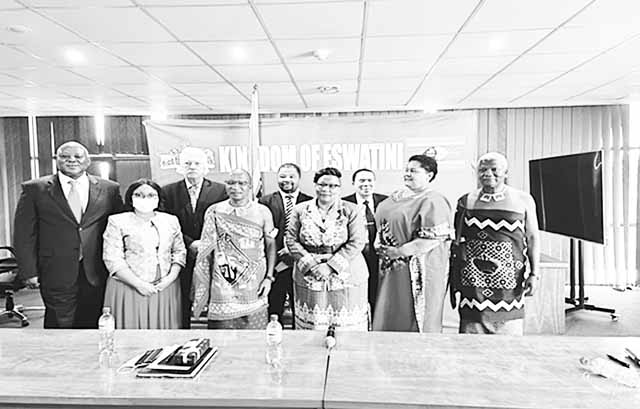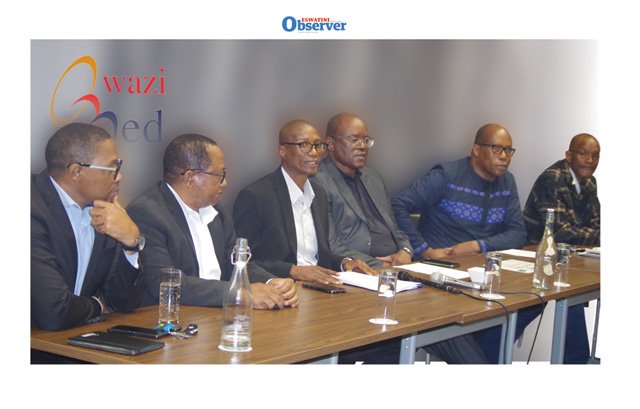By SIBUSISO DLAMINI | 2024-10-06

What was hailed as a ground-breaking E450 million project that would see the University of Eswatini (UNESWA) establish a medical school and state-of-the-art accommodation project has devolved into a master-class of blame-shifting.
Dubbed the ‘Lilima Lemaswati Medical School’ initiative, the ambitious move was announced to the public on December 12, 2019 during the signing ceremony of two Memorandums of Understanding between UNESWA and the Africa Cooperative Action Trust (ACAT), commonly referred to as Lilima Eswatini.
A Memorandum of Agreement was reportedly later signed between the University of Pretoria and UNESWA.
These agreements aimed to address two major challenges at UNESWA- the chronic shortage of student accommodation and the lack of local medical training facilities. Led by former UNESWA Council chairperson, Prince David and Lilima Consortium Chairperson, Dr Anna Mokgokong, the project was heralded as a transformative venture for the country’s premier tertiary institution, but to date, neither the accommodation nor the medical academy has materialised and these once-promising plans seem to have lost momentum.
According to the project overview, the project was designed to provide affordable medical education to local and international students, targeting the growing need for medical professionals in the Southern African region.
Initially introduced with much-fanfare, the initiative was sold as one set to house over 4 500 students and launch a medical academy, offering a Bachelor of Medicine, Bachelor of Surgery (MBChB), an undergraduate degree in medicine awarded by universities in countries such as the United Kingdom, South Africa and Zambia.
With the initiative still a non-starter about five years later, insiders attribute much of the delay to leadership changes within UNESWA’s upper echelons, claiming much of the momentum to bring it to life died down when the former UNESWA council chairperson, who was instrumental in driving the project forward, left.
“The former chairperson was very hands-on with the project, and once he left, no one seemed to pick up the reins. After his departure from the university, it’s as if the project has been forgotten, lost in the leadership changes,” revealed one of the insiders.
According to the insiders, the project had reached advanced stages, including briefings to two former prime ministers, in both the late Ambrose Dlamini and his successor, Cleopas Dlamini. “Both prime ministers were fully briefed and the project was ready to go.
It was a high-priority initiative, with a solid foundation laid in terms of planning and collaboration with external partners,” added the source.
The university’s former council chairperson, Prince David, who reportedly played a central role in the project’s planning and advocacy, confirmed knowledge of the project. He, said as an academic himself, the initiative was particularly close to his heart, but politely declined to elaborate on its current status, citing his departure from the university as the reason for his reticence.
“I am no longer with the university, so I feel it is not appropriate to comment,” he said, directing all inquiries to Vice-Chancellor Justice Thwala, stating that Thwala was fully informed from the onset about the project and its progress.
Thwala, however, strongly disputed that the hold-up stemmed from the departure of the former council chairperson and instead attributed it to funding issues on the side of the investor (Lilima), rather than any internal administrative shifts. “It is not the leadership change per se. From what we know, it seems the issue was funding.
It unfortunately appears that securing the funding was a challenge,” he said. Thwala described the project as a ‘very good initiative’ that had been in the pipeline for some time and had the potential to significantly benefit the university.
“The project was really promising, especially given the critical need for student accommodation.
The plan was that Lilima would build the accommodation, rent it out to students for about 20 years and then hand over the structure to the university,” he stated. According to Thwala the project while envisioned to be a long-term arrangement that would eventually benefit the university, faced pushback from some senior government officials who expressed reservations about it, particularly regarding its potential financial implications for UNESWA.
“There were many questions about the benefits to the university, especially if government would have been required to contribute financially, but overall, it was a good project that was going to help the university because it was sorely needed,” he stated.
Thwala also pointed out that there were concerns about the affordability of the proposed accommodation for local students.
“The proposed charges were around E3 000 per flat, which we felt was too expensive for most students which raised further questions about the project’s viability,” he said. Despite the challenges, Thwala expressed hope that the project could still be revived since the need for student accommodation and a medical school is still as pressing.
“Since the last meetings, we haven’t had any further discussions about it, but we remain hopeful and would welcome any opportunity to revisit the project, provided the funding issues can be resolved,” he further stated.
The university and Lilima also signed another MoU on July 28, 2021 to formalise the already existing partnership between the two institutions and improve the livelihoods of rural people through research and community-based projects and interventions.
Thwala, however, remains optimistic that the project could still be revived since the need for student accommodation and a medical school is still pressing. Speaking at the time of the announcement of the deal, the then UNESWA Council Chairperson, expressed his gratitude to His Majesty, the university’s Chancellor, for availing the land for the project.
“The ambitious nature of this initiative necessitates a commensurate supply of developmental and operational capital resources,” he said, underscoring the project’s scale. Dr Mokgokong, a respected medical practitioner and businesswoman, shared similar optimism, emphasising that Eswatini was very deal to her on a personal level, having spent some of her early years in the country, and therefore, she felt the country deserves a healthcare solution that is also born from its own soil.
share story
Post Your Comments Below
Social media users have reacted with shock and sorrow to the death of former Mhlume Unite...
Health officials have reported a significant decrease in new HIV infections among men, in...

THE recent turn of events at SwaziMed has underscored deep-rooted governance challenges that thre...

Sisonkhe FC ……........….. (0)2
Mpendulo 55th, Thab...
All material © Swazi Observer. Material may not be published or reproduced in any form without prior written permission.
Design by Real Image Internet